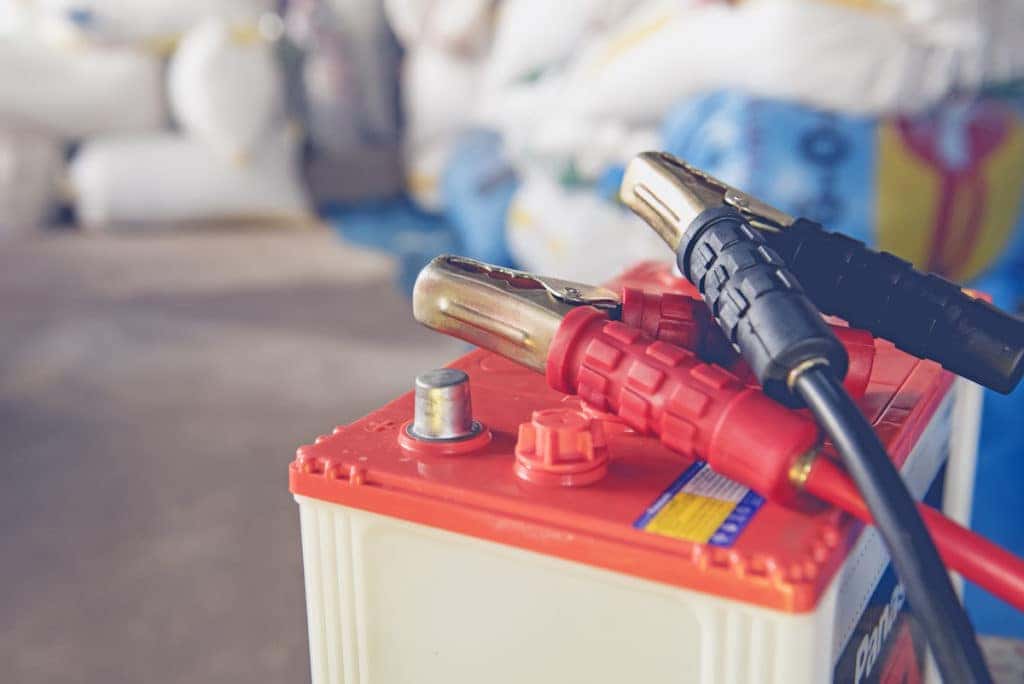A car battery typically lasts for 3 to 5 years, depending on usage and maintenance. Factors such as weather conditions and driving habits can also impact its lifespan.
Regularly checking the battery’s health and ensuring proper maintenance can help extend its longevity. In this blog post, we will explore the key factors that affect a car battery’s lifespan and provide tips on how to maximize its durability. By identifying the signs of a failing battery and implementing best practices for care, you can avoid unexpected breakdowns and costly replacements.
Let’s delve into the world of car batteries and learn how to make them last longer.

Credit: www.birchwoodcredit.com
Contents
Car Battery Lifespan
Understanding the basics of car battery lifespan is crucial for ensuring the vehicle’s reliable performance. From factors affecting longevity to average lifespan estimates, it’s essential to be informed about how long a car battery can last before needing replacement.
Factors Affecting Longevity
Various factors impact the lifespan of a car battery. Climate, driving habits, maintenance, and battery quality are key determinants of how long a battery will last.
Average Lifespan Estimates
The average lifespan of a car battery typically ranges between three to five years. However, this can be influenced by the aforementioned factors and may vary based on individual usage and environmental conditions.

Credit: www.toyotaoforlando.com
Signs Of Battery Deterioration
A car battery typically lasts 3-5 years. Signs of deterioration include slow engine crank, dimming lights, and frequent jump-starts. Regular maintenance helps prolong battery life.
Slow Engine Crank
When the car battery is getting old, one of the most common signs of deterioration is a slow engine crank. This happens because the battery is losing its capacity to provide enough power to the starter motor. It is important to note that a slow engine crank can also be caused by other issues, such as a faulty starter motor or alternator. However, if you notice a slow engine crank, it is best to have the battery checked to ensure it is not the culprit.
Check Engine Light
Another sign of battery deterioration is a check engine light. When the car battery is not functioning properly, it can cause a variety of issues with the vehicle’s electrical system, which can trigger the check engine light. If you notice this warning light, it is important to have the battery checked as soon as possible to avoid further damage to the vehicle.
Battery Case Swelling
Battery case swelling is another sign of battery deterioration. When a battery is exposed to high temperatures or is overcharged, it can cause the battery case to swell. This is a serious issue because a swollen battery case can lead to battery failure or even a dangerous explosion. If you notice any swelling or bulging in the battery case, it is important to replace the battery immediately.
In conclusion, these are the most common signs of battery deterioration that you should be aware of. By keeping an eye out for these warning signs, you can avoid being stranded with a dead battery and ensure that the vehicle is always running smoothly. Remember to have the battery checked regularly by a professional to ensure it is functioning properly and to avoid any potential issues down the road.
Extending Car Battery’s Life
Here are some tips to extend car battery life –
Regular Maintenance Tips
- Perform regular battery check-ups every 3 months.
- Ensure the terminals clean and free from corrosion.
Avoiding Common Drains
- Avoid leaving lights on when the engine is off.
- Disconnect any accessories when the car is not in use.
When To Consider Replacement
- If your battery is more than 3 years old.
- If you notice slow engine cranking or dim lights.

Credit: blog.clutch.ca
Frequently Asked Questions
Here are some FAQs about the car battery –
How Long Does A Car Battery Last?
Car batteries typically last between 3 to 5 years, but this can vary depending on various factors such as usage, weather conditions, and maintenance.
What Factors Can Affect The Lifespan Of A Car Battery?
Several factors can impact the lifespan of a car battery, including extreme temperatures, frequent short trips, lack of maintenance, and excessive electrical accessory usage.
How Can I Extend The Life Of My Car Battery?
To extend the life of the car battery, you can take a few simple steps such as keeping the battery clean, avoiding frequent short trips, turning off electrical accessories when not in use, and regularly checking the battery’s voltage.
What Are The Signs Of A Dying Car Battery?
Some common signs of a dying car battery include slow engine cranking, dim headlights, a clicking sound when starting the car, electrical issues, and the battery warning light on the dashboard.
Can I Replace My Car Battery Myself?
Yes, you can replace the car battery yourself if you have the necessary tools and knowledge. However, it is recommended to consult a professional if you are unsure or uncomfortable performing the replacement.
Conclusion
The lifespan of a car battery varies based on several factors, including usage and maintenance. By understanding the typical lifespan of a car battery and taking proactive measures to care for it, you can ensure that the vehicle remains reliable and functional.
Regular inspections and maintenance can significantly extend the life of the car battery, saving you time and money in the long run.